CONTENTS
Introduction
Ideology
I. EFFICIENT AND RESPONSIBLE GOVERNANCE FOR ALL
Good Governance
Responsible Public Finances
More Effective Relations within the Kingdom
II. DESAROYO SOCIO-ECONOMICO PA TUR
Reducing the Cost of Living and Combating Poverty
Ensuring Affordable Housing
Reducing the Cost of Entrepreneurship
A Favorable Tourism Model
III. HEALTH, WELL-BEING, AND INCLUSION FOR ALL
General Health
Adequate Care and Income for the Elderly
Transportation, Inclusion, and Neighborhoods
Youth and Sports
IV. EDUCATION AND EMPLOYMENT FOR ALL
Education
Employment
V. SAFETY FOR ALL Justice Safety for Pets
VI. SUSTAINABILITY FOR ALL
VII. A THRIVING CREATIVE INDUSTRY FOR ALL
VIII. SAN NICOLAS FOR ALL
INTRODUCTION
Over the past three decades, our island has undergone significant development. While economic growth was driven (without limits) and tourism became the dominant policy factor, local indicators remained unfavorable.
The necessary long-term vision was insufficiently prioritized, and our major issues remain unresolved. Insecurity and distrust in the government have become the norm in our reality.
We face numerous significant challenges: from public finances and housing to an aging population and structural labor shortages. Additionally, poverty and many social issues require various management measures to restore national governance, create order, and address deep structural difficulties meaningfully.
As representatives of the people, we must restore citizens' trust through healthy interaction between the government and the community to meet social needs. Achieving this requires constructive communication and transparency as the foundation for respectful interactions in Parliament.
It is essential to collectively consider the future we want to share. Now and in the future, we must protect the most vulnerable while setting sustainable development goals that benefit future generations, ensuring that everyone in Aruba can lead a dignified life.
With a moral compass and noble actions, we will build a resilient and practical community, generate sustainable solutions for the future, and maximize participation, social innovation, and personal development. All of this will align with our norms and values, guaranteeing social justice, transparent decisions, and responsible governance.
IDEOLOGIA
This party’s general and specific objectives are as follows
A. To be a progressive political movement that originates from individual empowerment and is expressed through transparency, accountability, respect, integrity, freedom, and trust.
B. To work towards effective and efficient governance that, through inclusion and integrity, creates better economic and social conditions for the Aruban community.

Efficient and Responsible Governance for all


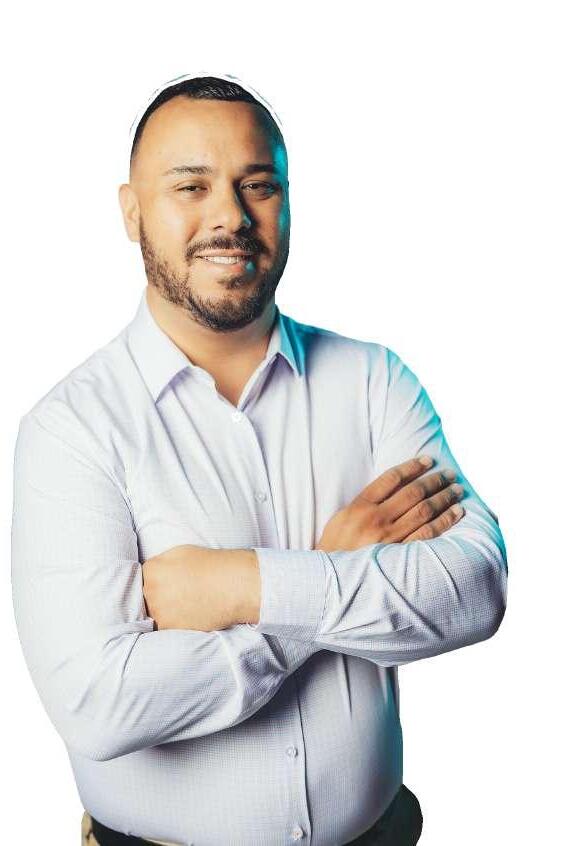

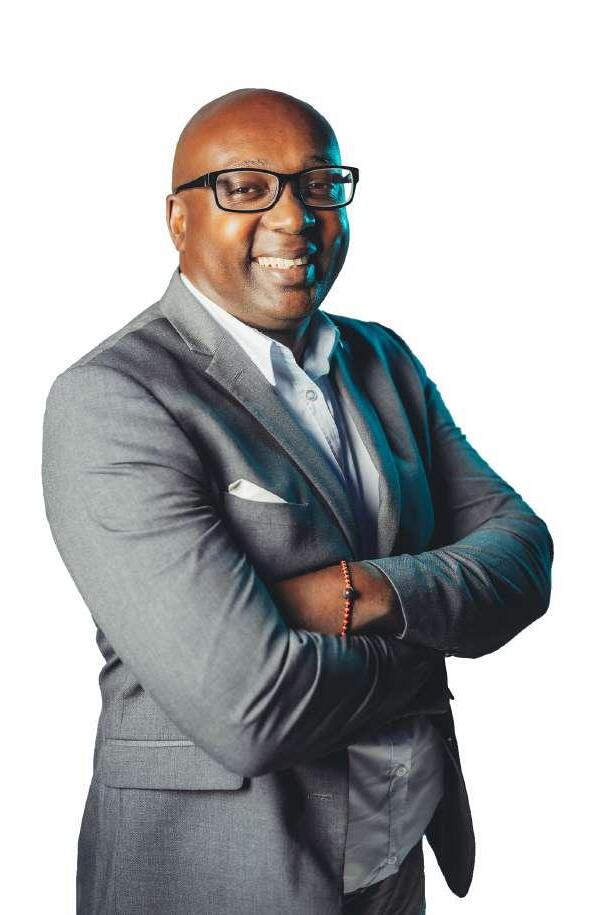

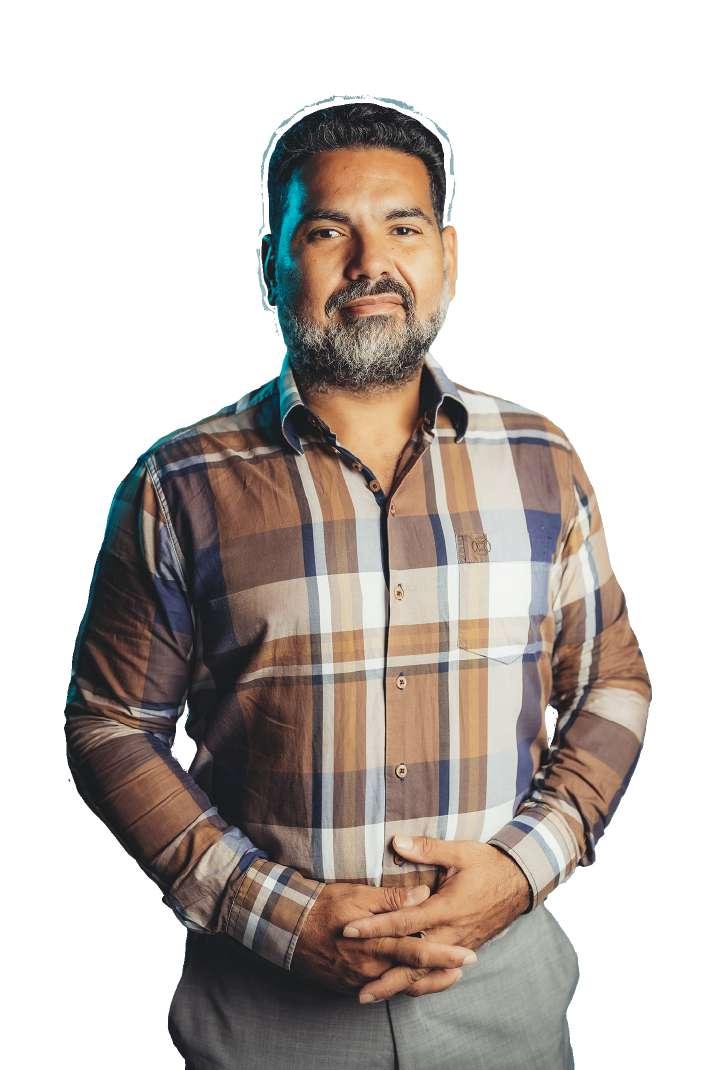


GOOD GOVERNANCE
What we see: Good governance is essential for the functioning of our rule of law and democracy. Without it, the people cannot trust their representatives. Addressing the community's social needs requires trust and constructive participation from citizens, which currently needs improvement.
Our vision: The public sector’s exercise of power and provision of public services must be transparent, effective, and fair. The government must act with integrity as a whole, ensuring honest and equal treatment based on our laws and principles of good governance.


Priorities and Action Plan:
Transparent and Effective Management:
- Process all permit applications within a maximum of six weeks after submission (within the first 18 months of the new government).
- Restructure the LAR complaints committee to ensure it issues advice within the legally established timeframe.
- Establish a dialogue structure with unions, stakeholders, and the community during the implementation of policies with administrative or financial impacts.
- Implement an Archives Act to promote transparency by ensuring the recording, cataloging, and publication of public documents.
- Support and strengthen the independent functioning of the Ombudsman.
- Create the position of Children's Ombudsman to protect minors' rights.
- Implement a Governance Code to regulate good practices in governance.
Improving Parliament:
- Establish a Code of Conduct for Members of Parliament.
- Modernize Parliament’s Rules of Procedure.
- Introduce mandatory training in constitutional and administrative law for all Members of Parliament.
- Provide technical assistance to MPs for drafting legislative proposals.
- Ensure Parliament’s operational independence.
- Set a maximum two-week deadline for ministers to respond to MPs’ questions.
- Publish all laws approved by Aruba’s Parliament.
- Publish all motions submitted in Parliament.
Optimization of State-Owned Enterprises:
- Enact the State-Owned Enterprises Governance Act.
- Develop job profiles and transparent processes for selecting and appointing directors and supervisory board members.
- Ensure timely approval of annual financial statements.
- Conduct full inspections every five years.
- Implement branch-based management systems.
- Introduce sound dividend management.
- Evaluate the impact of the Regulated Salaries Act for Executives to prevent professional outflow or demotivation in Aruba’s labor market.
RESPONSIBLE PUBLIC FINANCES
What we see: To overcome the challenges the pandemic brought to Aruba's economy and public finances, the BBO tax was increased, and a BBO at the border was introduced. Since then, the economy has recovered, and tax revenues have stabilized. However, the price levels of products remain high, as do the costs of doing business on the island.
Our Vision: We see opportunities to reduce government expenses—operational, personnel-related, and interest on national debt—which will create financial room to lower living costs, boost purchasing power, and reinvest in Aruba. We aim for a modern and fair tax system that supports businesses, provides better legal protection for taxpayers, and reduces administrative obligations. The budget should be the foundation for effective and efficient governance, guided by a strategic vision. Annual budgets must be balanced by law.
Our Action Plan:
Tax Reform:
- Initiate a fiscal dialogue with all stakeholders to reform Aruba's tax system, focusing on making it fair, simple, and efficient, with reduced administrative burdens.
- Promote a shift from direct to indirect taxation, positioning Aruba as an investment hub in the Caribbean and Latin America.
- Explore the possibility of replacing BBO with VAT to eliminate cumulative effects and improve system efficiency.
Financial Oversight:
- Complete the implementation of the Kingdom Law on Financial Supervision to secure access to lower-interest financing, reducing interest and loan burdens related to COVID-19 by 39.5 million in 2025 and 48.3 million in 2026.
- Persuade the Netherlands to refinance the remaining national debt through financial institutions in the U.S. and Aruba to significantly lower interest costs and create financial space.
Reducing Government Spending:
- Reduce operational government expenditures for goods and services by 10%, saving 22 million annually.
- Set a limit of seven (7) ministries in the cabinet.
- Finalize annual financial reports to improve budget control.
- Reduce government payment terms to suppliers from 90 days to 30 days, stimulating the economy, strengthening small businesses, and lowering costs incurred by the private sector.
Administrative Efficiency:
- Strengthen Customs with equipment and technology to optimize efficiency.
- Reduce the personnel budget by digitizing processes.
- Automate and centralize all commercial licensing processes to improve synergy and interdepartmental collaboration.
Strategic Investments:
- Implement an investment program to stimulate GDP and promote economic growth through capital investments.
- Establish a sovereign wealth fund to invest a portion of national revenues for future generations.
Division of Roles in the Finance Directorate:
- Improve transparency and efficiency by dividing roles into specific areas:
- Expenditure Function / Revenue Function
- Budget Function (as an independent department)
- Financing Function (assigned to the Central Bank of Aruba).
MORE EFFECTIVE RELATIONSHIPS WITHIN THE KINGDOM
What we see: The pandemic has created new relationships and collaboration opportunities within the Kingdom. These circumstances provide valuable tools to build a more sustainable future for both citizens and the country.
Our Vision: We aim to demonstrate that Aruba is a serious and reliable partner within the Kingdom, ready to collaborate with other countries to harness the cooperation opportunities offered within this framework. We seek to strengthen our position and expand mutually beneficial cooperation.
Our Action Plan:
- Formalize and conclude negotiations with the Netherlands to refinance national debt and obligations from Public-Private Partnerships (PPP).
- Temporarily increase technical assistance in various government departments to enhance administrative and operational capacity.
- Accelerate the implementation of the program under the National Package and explore expanding it to new areas of collaboration.
- Secure access to funds from the Netherlands for projects promoting sustainable development in Aruba.
- Strengthen cooperation within the Kingdom in key sectors such as trade, agriculture, health, justice (especially migration), education, relations with the European Union, and the energy transition.
- Actively participate in trade missions organized by the Kingdom of the Netherlands and promote business opportunities for Aruba.
- Expand the presence of the House of Aruba and strengthen the role of Aruba's Minister Plenipotentiary in the Netherlands for more effective representation.
- Extend collaboration with Dutch municipalities in areas of common interest by sharing knowledge and resources.
- Foster greater collaboration with coordinating agencies in the Netherlands to facilitate access to European and Dutch funds for strategic projects.


Social and Economic Development for all




REDUCING THE COST OF LIVING AND MITIGATING POVERTY
Current Situation:
1. Citizens' purchasing power has drastically decreased in recent years.
2. Supermarket prices are extremely high.
3. It is nearly impossible for young families to purchase their own homes.
4. Fuel, water, and electricity costs are excessively high.
As a result, many citizens need to take on multiple jobs to survive, support their families, and maintain a dignified life.
Our Vision: An Aruba where every citizen earns enough to cover housing, food, basic utilities, transportation, and other essential needs, while still having resources for leisure. We aim to bring the wealth of our nation into every household.
Within the first three months of governance, we will implement immediate measures to allow citizens to retain more of their income and improve purchasing power. In months four to six, structural steps will follow to ensure sustainable strengthening of purchasing power.
Actions for the First Three Months:
- Eliminate one tier of the BBO tax on fuel, reducing costs and giving citizens more disposable income.
- Reduce payroll taxes so employees retain a larger share of their net income.
- Increase the tax-free threshold, exempting more individuals from tax obligations and improving disposable income.
- Responsibly increase benefits for retirees and minimum-wage workers to provide more monthly income.
- Begin dialogue on adjusting import duties based on product value to lower consumer costs.
Actions for Months Four to Six:
- Expand solar panel capacity for households to lower electricity bills.
- Ensure solar panel inspections are completed within four weeks after installation.
- Promote local production of fruits, vegetables, and eggs through international collaboration to reduce import dependency.
• Equip all schools with solar panels to reduce their electricity costs, enabling lower school-related fees.
- Implement a subsidy program to help lower-income households install solar panels, reducing electricity costs inclusively.
GUARANTEEING AFFORDABLE
HOUSING
Current Situation: Owning a home has become nearly impossible for most people, with high prices out of reach for those with modest or average incomes. There are significant delays in land allocation by the Department of Infrastructure and Planning (DIP). High material and labor costs drive up housing expenses, while stringent "own contribution" requirements mak access to homeownership even harder. High demand for short-term rental properties (e.g., Airbnb) by non-residents inflates market prices, leaving fewer options for locals.
Our Vision: A balanced and sustainable housing market where every Aruban has the opportunity to own a decent, affordable home. Policies will prioritize local residents, ensure transparency in land and housing allocation, and provide access to fair financing options.
Planned Actions:
- Introduce legislation to limit non-residents from purchasing homes within the first six months of governance.
- Ensure all vacation rental properties are registered, adhere to quality standards, and are adequately regulated.
- Use tax revenues from vacation rentals to subsidize mixed housing projects for youth and seniors.
- Reorganize DIP to process all pending public land requests within 12 months.
- Digitalize the land allocation process to enhance transparency and prevent misuse.
- Publish the list of land allocations to ensure public accountability.
- Reallocate abandoned or unfinished public lands/buildings for use by local citizens in need.
- Convert vacant schools into mixed housing projects for youth and seniors.
- Incentivize building owners in Oranjestad and San Nicolás to convert upper floors into housing units.
- Provide rental subsidies for tenants and tax deductions for landlords investing in housing projects.
- Allow APFA to offer low-interest loans to FCCA for constructing social housing.
- Increase the Guarantee Fund to cover down payments and make bank financing more accessible.
- Raise property taxes on non-residents to balance the market and fund local housing programs.

LOWERING BUSINESS COSTS
Current Situation:
labor, and real estate. Government inefficiencies, such as slow licensing processes and customs delays, lead to increased costs and administrative burdens. These factors inflate the prices of goods and services, affecting both entrepreneurs and consumers.
Our Vision: operational costs, enables sustainable profit margins, and promotes affordable consumer pricing. A government that offers streamlined and timely services, especially for licensing and taxation.

Planned Actions:
- Initiate an inclusive dialogue to simplify and modernize the tax system by replacing the BBO with a VAT to reduce cumulative costs and administrative burdens.
- Expedite customs procedures to reduce delays and associated costs for imported products.
- Develop a digital platform to manage all business permits (establishment, construction, employment, commercial land, etc.) with a guaranteed issuance period of six weeks.
- Reduce fuel prices by eliminating one tier of the BBO tax on gasoline and diesel.
- Expand solar panel capacity for businesses to lower electricity costs, with inspections completed within four weeks.
- Implement Central Bank-recommended laws to cap bank fees and regulate international transaction costs.
- Establish a national payment system overseen by the Central Bank to reduce transaction fees.


A SUSTAINABLE TOURISM MODEL
Current Situation: Tourism is Aruba’s economic engine, but uncontrolled growth has strained the environment, natural resources, and ecosystems. Infrastructure and essential services such as housing, healthcare, transportation, and education are under pressure. Additionally, reliance on foreign labor limits opportunities for locals and increases social strain.
Our Vision: A sustainable approach to tourism that balances economic growth with environmental, cultural, and social preservation. Reduce reliance on foreign labor and ensure the well-being of future generations.
Planned Actions:
- Suspend the development of new hotels, rooms, and tourist apartments.
- Publish all active and pending construction permits for transparency and accountability.
- Implement educational and vocational programs to train locals in tourism sector skills, reducing reliance on foreign workers.
- Introduce mandatory Corporate Social Responsibility (CSR) requirements for the hospitality industry to mitigate environmental and social impacts.
- Promote local production of fruits and vegetables to meet some of the tourism industry’s demand and reduce imports.
- Attract niche tourism focused on culture, arts, and sports to diversify the market segments.
- Encourage investments in vocational education infrastructure to align with sector needs.


Health, Well-Being, and Inclusion for Everyone
GENERAL HEALTH
What We See: Aruba faces significant challenges in its healthcare sector, including a shortage of qualified medical professionals to meet increasing demand, strain on the system due to an aging population, rising chronic diseases related to obesity and stress, a growing undocumented population, and the impact of tourism on healthcare resources. Additionally, there is a pressing need to modernize medical technology to improve the quality and efficiency of healthcare.
Our Vision: We aim to create a resilient and accessible healthcare system for all, including residents and visitors, ensuring high-quality medical care. We will leverage AZV surpluses to modernize and expand services and collaborate regionally to strengthen the public healthcare system.
What We Want to Do:
- Improve processes within the healthcare system and modernize AZV's service package, which has not been updated since 2000.
- Introduce a positive drug list ensuring AZV covers all necessary medications for the elderly.
- Include psychological care in AZV's basic coverage.
- Implement internationally-assisted projects to reduce outpatient clinic wait times and improve access to diagnostics like MRIs and internal medicine.
- Conduct prevention campaigns and promote healthy lifestyles and balanced diets.
- Restructure cooperation between the hospital and medical centers to improve care and services.
- Strengthen international collaboration, both within and beyond the Kingdom of the Netherlands, to improve health resources and partnerships.
- Adjust healthcare professionals’ salaries to match inflation and provide adequate benefits.
- Promote innovation, expand hospital capacity, and reassess physiotherapy needs to align with system demands.
- Revise AZV surplus laws to redirect public funds toward healthcare system improvements.
ADEQUATE CARE AND INCOME FOR SENIORS
What We See: With an aging population—27.2% of the population will be over 60 by 2025—the demand for geriatric care is increasing. There is a shortage of care centers and specialized personnel, impacting the quality of care for seniors. Many elderly individuals face financial difficulties and limited access to social welfare programs and participation.
Our Vision: We aim to ensure that all seniors have access to high-quality medical care, appropriate geriatric services, and programs promoting health, well-being, and social participation. We will work on solutions to enhance their purchasing power and quality of life.
What We Want to Do:
- Build and adapt housing for seniors, ensuring accessibility and safety.
- Guarantee continuous access to necessary medications for seniors’ health.
- Invest in senior care centers to provide optimal conditions and quality services.
- Offer foundational and advanced educational programs for seniors to enhance intellectual and social well-being.
- Create more activity centers in every district, alongside physical spaces and parks to promote movement.
- Improve seniors’ purchasing power through repair subsidies and economic support programs.
- Facilitate access to public transportation for seniors to help them access services and social activities easily.
TRANSPORTATION, INCLUSION, AND OUR NEIGHBORHOODS
What We See: Not all Aruba residents have equal opportunities to fully participate in society. Without active community participation, Aruba's social and economic development is limited. Barriers such as inaccessible infrastructure, lack of motivation, and institutional constraint hinder integration and participation.
Our Vision: We strive for an inclusive society where everyone has the capacity, motivation, and necessary support to actively participate in Aruba’s social, economic, and cultural life. We aim to foster a more cohesive and engaged community where individuals can thrive and contribute to collective well-being.
What We Want to Do:
- Enhance Arubus with smaller, more sustainable buses to ensure accessible transport for all.
- Introduce free travel periods for seniors and youth to improve mobility.
- Redesign public transport routes to optimize accessibility for the majority.
- Invest in neighborhood facilities and parks to enhance physical and social well-being.
- Restructure sports facilities to encourage participation across all ages.
- Organize informative “active neighbors” evenings to improve quality of life in neighborhoods.
- Promote educational participation through training programs for all age groups.
- Encourage volunteering in community activities, sports, arts, and culture.
- Facilitate citizen participation via neighborhood meetings on key issues and public decisions.
- Support foster families and mutual care initiatives to strengthen familial and social bonds.
- Recruit qualified professionals to train parents of children with autism and other disabilities.
- Develop a structural campaign promoting participation of autistic individuals and those with disabilities, particularly in the workforce.
- Invest in after-school programs offering activities in sports, arts, and creativity aligned with the education system.
- Create a central website for neighborhood activities and events to streamline access to participation opportunities.
- Implement service desks at all MFA centers for accessible social and legal assistance.
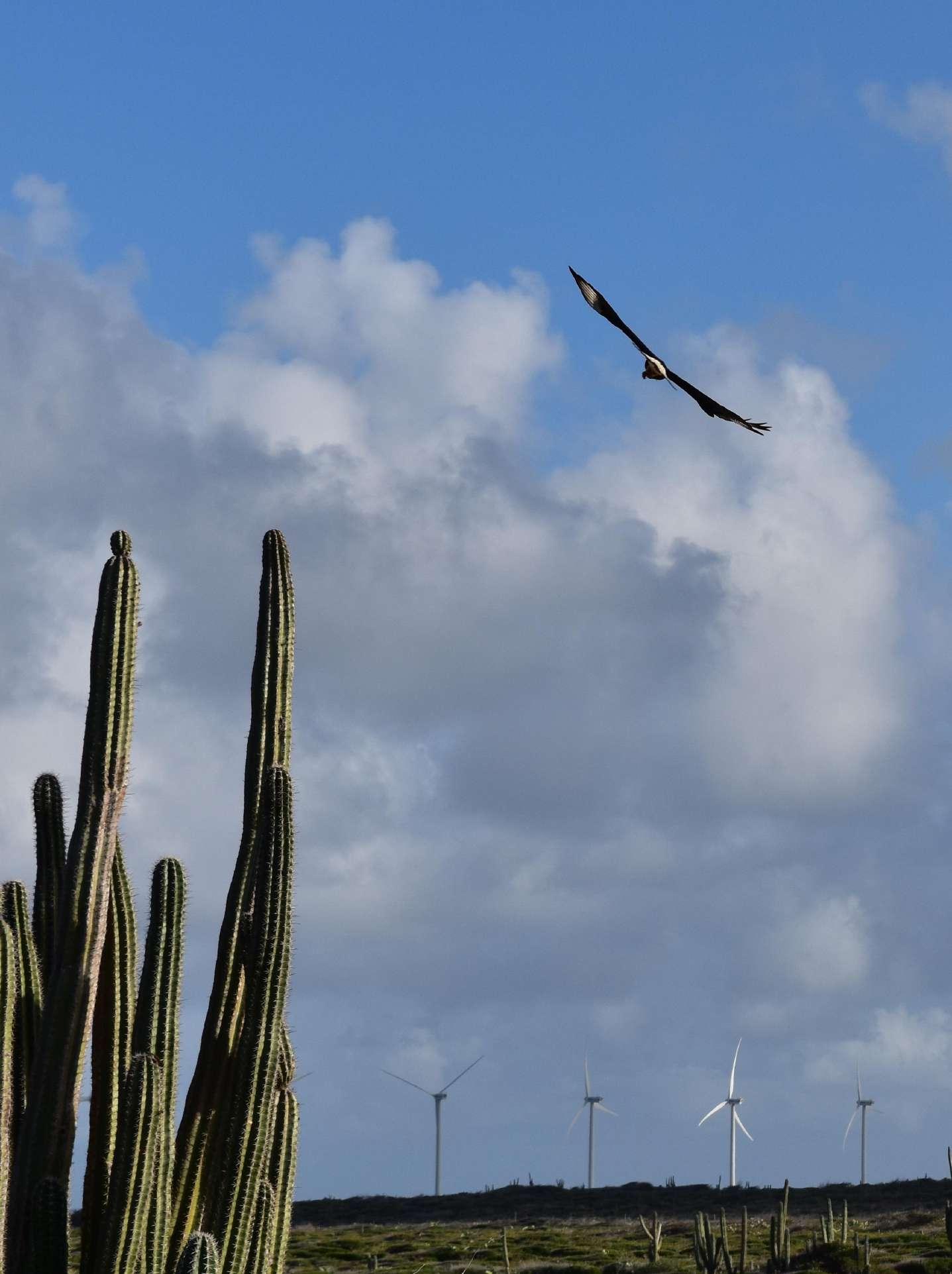
YOUTH AND SPORTS
What We See: The inadequate participation of youth in society and public decision-making negatively impacts Aruba's socio-economic development. Additionally, there is a lack of proper structures to support the emotional health of youth and insufficient infrastructure to ensure their success during childhood and adolescence.
Our Vision: We aim to create a community where young people drive future innovation and actively participate in all areas of society through education, work, sports, volunteering, and creativity. We want to empower youth to have a voice and provide them with the tools to become the leaders of tomorrow.
What We Want to Do:
- Provide a second chance at education for young people who have not completed their studies.
- Encourage youth involvement by certifying volunteer work, fostering responsibility and participation.
- Empower youth through programs focused on mental health and responsible use of resources, especially in schools and youth organizations.
- Create a national youth dialogue platform through a National Youth Council with representation in the Council of Ministers to involve youth in public decision-making.
- Invest in maintaining sports facilities to ensure young people have suitable spaces for sports and physical activities.
- Conduct a thorough review of public funds allocated to sports over the past decade to optimize usage and ensure transparency.
- Centralize the registration and support system for volunteers, coaches, and referees to enhance the quality and organization of sports associations.
- Promote talent and creativity projects in neighborhoods using digital platforms to highlight activities targeting youth.
- Boost Aruba’s sports tourism by organizing international tournaments and supporting local elite athletes.


Education for all
EDUCATION
What We See: Aruba’s education system has struggled for decades with outdated curricula and insufficient teacher training. Limited resources, tools, and support for educators restrict the quality of education. Furthermore, there are no flexible educational opportunities to address the diverse needs, capacities, and aspirations of children and youth, affecting their development and future prospects.
Our Vision: We are committed to transforming Aruba’s education system into a progressive model ready for the future. This transformation requires a clear national strategy for innovation and a digital agenda aligned with both national and international standards. FUTURO aims to create legislation that fosters innovation and offers second chances for all citizens, emphasizing the social and academic development of children and youth.
What We Want to Do:
- Revise the teacher salary structure and introduce a reward system for continuous professional development and quality improvements.
- Develop an inclusive educational strategy focused on integrating 21st-century skills (STEM) and transversal competencies.
- Invest in the care structures of each school by adding social workers based on community needs and accelerating evaluations at the Multidisciplinary Center (MDC).
- Address classroom distribution issues and optimize capacity to ensure better learning environments.
- Update the curriculum to prepare students for the future, with a focus on science, technology, engineering, math (STEM), and essential 21st-century skills.
- Train teachers in personalized teaching methods tailored to individual student needs and enhance the Papiamento curriculum as a medium of instruction.
- Offer continuous Papiamento courses and create accessible information systems for teachers and parents.
- Align education with labor market demands, promote critical thinking, and foster a resilient community through vocational training.
- Restructure advanced education funding and create more opportunities for individuals seeking further education.
- Create flexible educational pathways for those who have not completed their initial studies, aligned with labor market needs.
- Introduce an accreditation system for vocational education and specific skills training.
- Train all educational staff in agility, creative thinking, innovation, and digital skills.
- Establish a department to secure grants and external funding (e.g., from the EU) for innovative education projects.
- Modernize the education inspectorate and streamline student transitions between education levels (preschool, primary, secondary).
- Accredit non-traditional schools meeting quality standards, even if they are not part of the Dutch education system.
- Collaborate with the private sector and NGOs to share knowledge and enhance education quality.
- Strengthen the Ministry of Education to increase its regulatory capacity and improve functionality.
- Manage education systems for undocumented students to safeguard their right to education.
- Invest in and restructure primary and secondary education with a focus on children with disabilities.
- Develop programs that facilitate professional experiences for youth under school supervision to ease their entry into the labor market.
- Restructure and invest in the EPI (Educational Practice Institute) to offer courses aligned with current and future labor market needs.
LABOR
What We See: Aruba’s labor market is saturated. Despite the opening of new hotels, structural issues persist, such as a high number of undocumented workers in various sectors who do not contribute to AZV and SVB funds but receive emergency medical care. Additionally, the work permit system is outdated, and no substantial changes have been made.
Our Vision: We aim to legalize and flexibilize the work permit process based on efficient labor planning. We will establish databases and programs synchronized with sector-specific labor needs, encouraging full labor market participation. FUTURO stands for equality and rejects discrimination of any kind, striving for equal opportunities for all.
What We Want to Do:
- Legally ensure greater flexibility in the hotel industry for parents, enabling easier labor market participation.
- Foster dialogue between the public and private sectors to create pilot projects offering childcare and youth care subsidies.
- Amend legislation to ensure employment opportunities for people with autism or other disabilities, including incentives for companies to promote workforce diversity.
- Digitize the work permit process and promote transparency in the labor market.
- Grant larger companies (with more than 100 employees) increased autonomy and responsibilities for recruiting through their HR departments.
- Shift the Department for Labor Advancement (DPL) focus to small and medium-sized enterprises and enhance oversight.
- Introduce a law protecting the labor rights of all workers in Aruba.
- Inform foreign workers of their labor rights and obligations.
- Provide undocumented workers with temporary work permits if they can prove employment, enabling DIMAS to maintain effective oversight.
- Regulate the labor market and publish data, including gender and role-based salary comparisons.
- Implement a digital system for companies to manage staff efficiently, improving oversight by the Labor Inspection.
Safety for all



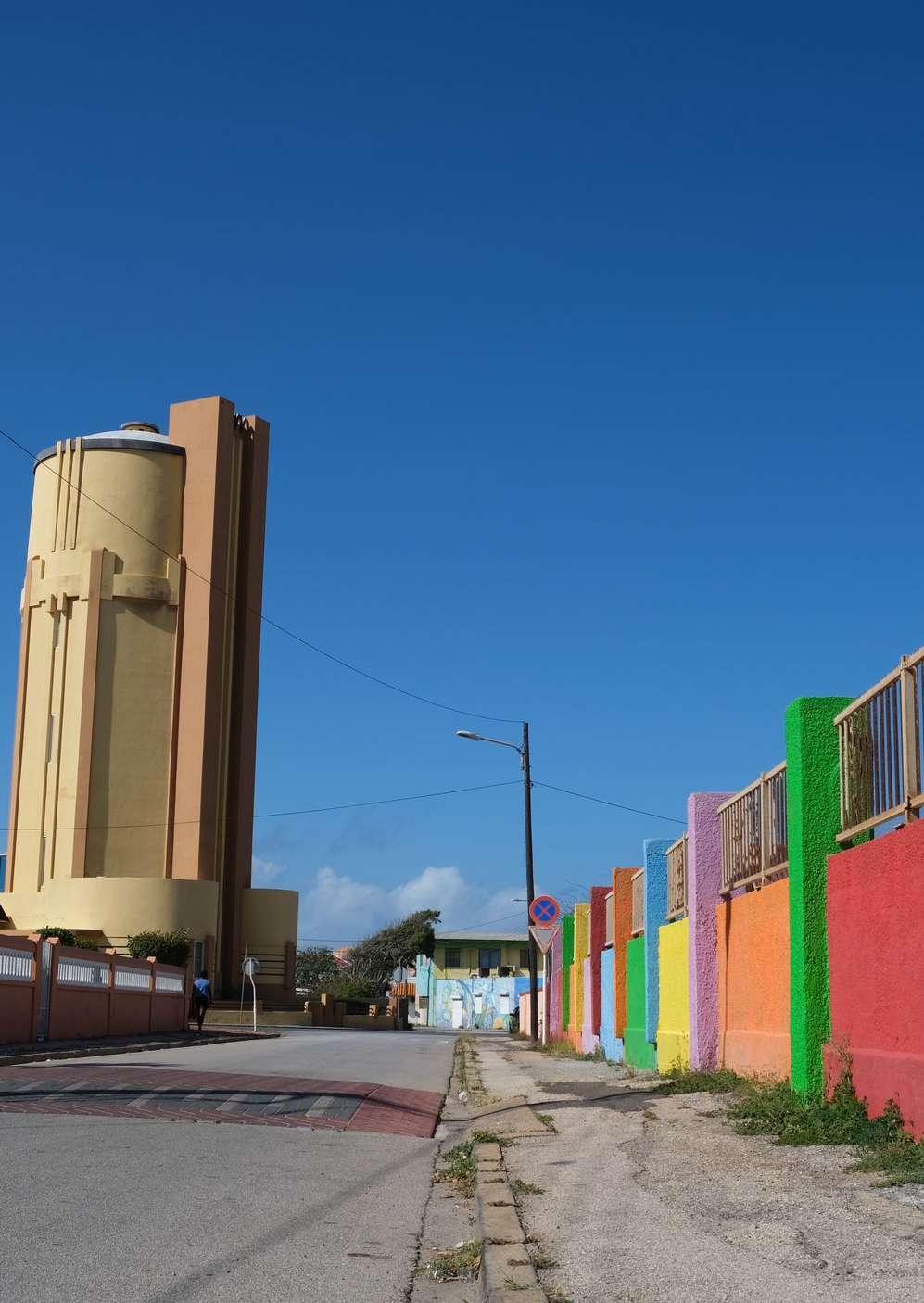
HUSTICIA
What We See: There are serious concerns about the lack of trust in the judiciary, exacerbated by an absence of vision and a clear strategy. Additionally, crime prevention, particularly among youth, and addiction treatment are insufficiently addressed. Border security sectors and departments focusing on the prevention and combat of organized crime and corruption need significant support to be effective.
Our Vision: We aim to restore public trust in the legitimacy of government institutions, particularly the judiciary, and ensure a higher quality of life and safety for all. This can only be achieved by safeguarding government integrity through effective and formal strategies to prevent and combat crime, enhance societal resilience, and uphold the rule of law.
What We Want to Do:
- Identify and prevent youth crime through early intervention programs and social support.
- Foster collaboration between the ministries of social affairs, culture, and sports to provide attractive and formative alternatives for youth, encouraging them to become productive citizens.
- Partner with local foundations to deliver collaborative, efficient, and effective services for addiction prevention and treatment.
- Implement strategies to prevent crime and reduce recidivism, focusing on rehabilitation programs for repeat offenders.
- Support individuals with addictions and psychological disorders and promote their rehabilitation and reintegration into society.
- Combat drug use, sales, and trafficking through a combined strategy of prevention and enforcement.
- Strengthen border security with both preventive and repressive measures to manage the illegal influx of people and goods.
- Dismantle criminal enterprises and enhance the government’s efforts against organized crime and corruption.
- Provide the Aruba Police Force (KPA) and other investigative services with additional staff, proper equipment, and continuous training.
- Review and update criminal law and penalties to ensure proportionality and effectiveness.
- Revise traffic laws to align with the country’s current realities.
- Ensure judicial departments function with proper vision, training, and processes to provide impartial and high-quality services.
- Restructure the KPA to reduce unnecessary costs and improve operational efficiency.
- Begin constructing a new correctional facility focused on rehabilitation and reintegration programs.
- Offer attractive compensation packages to recruit more social workers and improve the quality of social services.
- Establish a national advisory unit to facilitate decision-making between social workers and administrators for addressing complex social issues.
- Develop reintegration programs emphasizing educational and professional development for inmates, particularly in high-demand fields like engineering and technology.
ANIMAL WELFARE
What We See: The safety and well-being of animals in Aruba are not adequately guaranteed. Protecting animals is essential for preserving biodiversity. Despite the introduction of the Dog Law in 2015, significant challenges remain, particularly in managing stray dogs and cats. Broad community involvement is needed to improve this situation.
Our Vision: We envision a society guided by empathy and respect for all living beings, where everyone contributes to preserving biodiversity and improving animal welfare and protection.
Kico Nos Kier Haci:
- Continue implementing mandatory dog registration to ensure all animals are correctly identified and registered.
- Strengthen the capacity of the KPA to monitor animal welfare in neighborhoods, including enforcing penalties for non-compliance with animal protection laws.
- Create structural programs in all neighborhoods about the importance of animal protection and its relationship with biodiversity.
- Centralize communication lines between organizations and foundations active in animal protection, with a single phone number to facilitate communication.
- Allocate funds for an ongoing sterilization program to control the animal population reduce overpopulation, and improve living conditions for animals on the island.


Sustainability for all


ENERGY TRANSITION
What We See: Aruba faces significant challenges in its energy transition. The overburdened electricity grid and delays in certifying solar energy projects highlight limitations in the renewable energy sector's capacity. Additionally, the high cost of conventional electricity imposes a financial burden on many households, restricting access to affordable and sustainable energy.
Our Vision: We aim for an inclusive and structured energy transition focused on xpanding renewable energy sources like solar and wind power. Our goal is to reduce dependence on imported oil and lower electricity costs while fostering a low-carbon economy that benefits both the environment and citizens' quality of life.
Priority: Develop a strategic energy transition plan within six months. This plan will detail how renewable energy can be expanded, stimulate its use through subsidies and financing, and define the necessary steps to modernize the island's electricity infrastructure.
What We Want to Do:
- Ensure all citizens benefit from the energy transition by investing in modernizing the electricity distribution network.
- Increase solar and wind energy capacity, prioritizing decentralized storage systems to enhance grid resilience and reduce oil dependence.
- Explore the potential of offshore wind energy and other alternative energy sources, such as ocean energy, to diversify the island’s energy supply.
- Establish a subsidy program to help households acquire solar panels, lowering energy costs and increasing the adoption of clean technologies.
- Develop strategies to decarbonize the economy by reducing CO2 emissions, promoting synthetic fuels, and phasing out fossil fuels.
- Create a carbon trading platform in Aruba to promote sustainable practices by exchanging carbon credits between productive sectors.
- Review the current liquid natural gas (LNG) contract to determine its role in the island’s energy mix, considering its impact on transitioning to renewable energy sources.
ENVIRONMENTAL MANAGEMENT
What We See: Aruba faces significant environmental challenges that threaten its fragile ecosystem. Tourism, urban development, and climate change lead to habitat loss, pollution, and biodiversity decline. These issues affect the island's economy and the quality of life of its residents. Waste management, protection of natural areas, and addressing invasive species are some of the biggest concerns.
Our Vision: To address these challenges, we must promote sustainable practices in land management and wastewater processing while strengthening and updating environmental legislation. It is vital to create protected areas that foster ecosystem regeneration, reduce pollution, and raise awareness about the importance of environmental protection among locals and visitors.
What We Want to Do:
- Educate the community about the value of Aruba's nature and create opportunities for active involvement in protecting and restoring the natural environment.
- Protect and restore natural habitats to safeguard the island’s biodiversity and ecosystem.
- Promote sustainable habits within the community and across various economic sectors to reduce energy and water waste and minimize waste production.
- Build capacity to enforce and strengthen environmental laws, with regular updates to address current needs and challenges.
- Conduct a review of zoning requirements (ROPV) to ensure efficient land use.
- Ensure effective allocation and protection of land, focusing on sensitive areas to prevent misuse or degradation.
- Enforce strict control over approvals for waste disposal sites, reduce pollution, and promote separate waste collection.
- Introduce comprehensive environmental legislation (Environmental Act) to better regulate and protect Aruba’s natural resources.
- Inventory polluted areas, such as the Aruba refinery and the municipal landfill, to create a remediation and recovery plan.
- Plan and execute the phased cleanup of the refinery site with clear cost estimates and funding.
- Ensure adherence to deadlines and quality standards for the wastewater treatment project (RWZI) to improve water quality on the island.

Prosperous Creative industry for all
PROMOTION OF THE CREATIVE AND CULTURAL INDUSTRY
What We See: There is significant interest among local talent to actively participate in the creative and cultural industry, with various initiatives already underway. Despite the sector's great potential, several challenges persist. Access to funding is limited, as banks often do not support entrepreneurs in this industry. Additionally, high rental costs and bureaucratic hurdles discourage the industry's growth. Despite these obstacles, there is immense potential that the government can help unlock to enable the industry to reach its full capacity.
Our Vision: Strengthening the community and stimulating the economy by investing in creativity and culture. This includes integrating creativity into all education programs and promoting sectors like music, film, literature, design, fashion, theater, and video games. This will create jobs, foster cultural and social development, and enable the export of our works and services. Additionally, it will contribute to greater national revenue.
Kico Nos Kier Haci:
- Implement an updated approach to the "Orange Economy," integrating all sectors related to creativity and culture.
- Develop a comprehensive inventory of Aruba's creative and cultural industry to map out its key components and stakeholders.
- Establish a low-interest funding pool specifically for projects and businesses within the creative industry to encourage innovation and growth.
- Continue workshops and programs like the Creative Business Academy, in collaboration with Qredits, to enhance the entrepreneurial skills of creatives.
- Develop a strategy to ensure coherence and coordination between various government departments and subsidized foundations already active in the creative sector.
- Conduct a thorough evaluation of the use of public funds in the sector over the past decade to optimize allocation and ensure resources are used effectively.
- Offer tax benefits for purchasing materials, instruments, and other essential supplies for creating artworks to stimulate industry growth.
- Provide fiscal incentives to promote investments in education and projects that involve artists and schools, fostering closer collaboration between the industry and education sectors.
- Establish programs to train creatives on writing funding proposals, making financial resources more accessible.
- Identify all local, regional, Kingdom, and EU funding opportunities available to support projects in the creative industry.
- Encourage the use of local art, music, and other cultural activities within the hotel industry to support local talent and enrich the tourist experience in Aruba.
San Nicolas for all

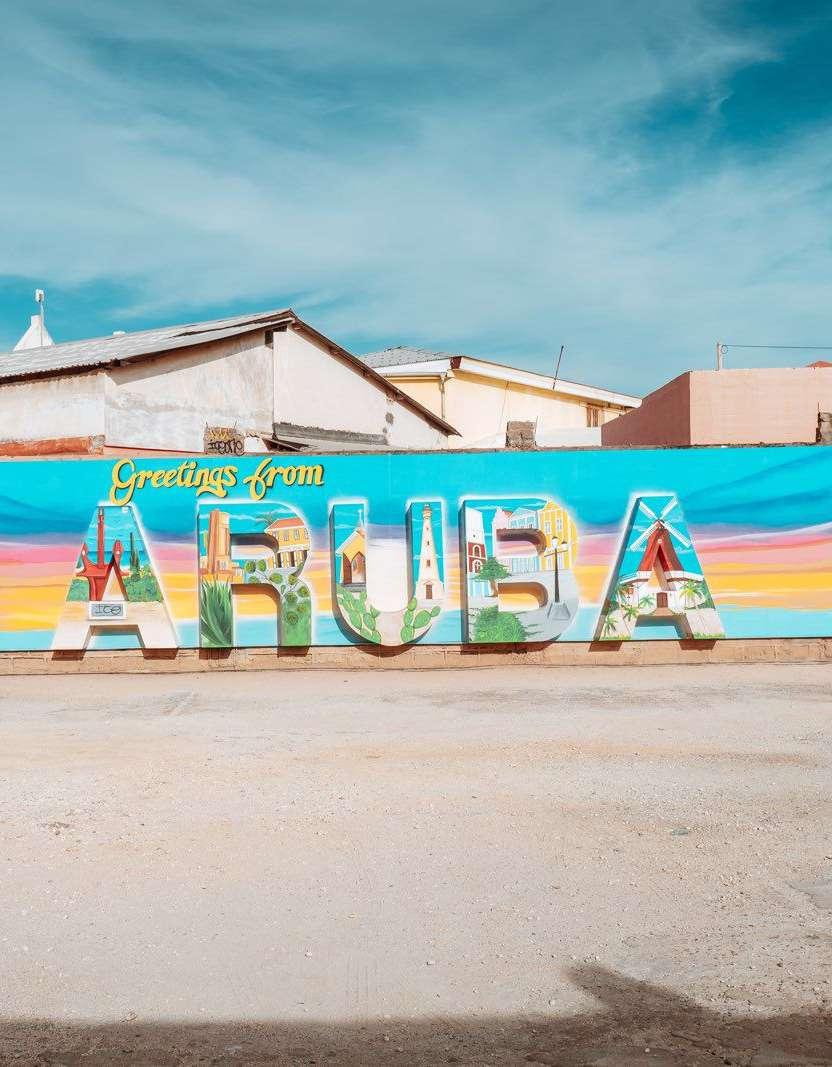


SAN NICOLAS FOR EVERYONE
What We See: San Nicolas has been an outdated industrial area for decades, dominated by an aging refinery that mars the city's landscape. The city center is filled with vacant and deteriorating buildings, while the residential neighborhoods lack sufficient attention and investment to spur development. This situation has limited San Nicolas' potential and deprived many residents of opportunities to thrive.
Our Vision: We aim to remove the barriers that have kept San Nicolas in the shadows and transform it into Aruba's second city—a vibrant hub of social, artistic, and economic activities, where residents can live with dignity and have access to economic opportunities. San Nicolas should become a cultural, artistic, and economic centerpiece where all citizens can contribute to and benefit from its growth.
What We Plan to Do:
- Develop 50,000 m² of the refinery site, from the Nicolas Store roundabout to the beach, including a boulevard styled after the Linear Park, a fishing pier for recreational activities, and a marina.
- Position San Nicolas as Aruba’s art, culture, and history capital, fostering the Orange Economy through cultural guide programs.
- Offer educational programs for youth in creative and cultural sectors.
- Establish an activity center for seniors to ensure all generations are actively involved in community life.
- Convert abandoned buildings into homes and spaces for art, culture, music, and history.
- Provide tax incentives to attract investors for renovating commercial properties in the main street, stimulating economic growth.
- Facilitate government and low-interest bank loans for property and business renovations.
- Collaborate with Suriname and Guyana to use refinery tanks as storage facilities for international oil companies, strengthening San Nicolas' international competitive position.
- Decommission the refinery and remediate the site for new economic and residential projects.
- Attract investments to develop part of the refinery site for Bitcoin mining projects, bringing technology and innovation to the region.
- Install a solar park on contaminated sections of the site to reduce electricity costs for the local community.
- Utilize non-contaminated areas for building affordable housing, promoting sustainable urban growth.
- Modernize specific neighborhoods, such as the red-light district, by enforcing stricter regulations and measures to enhance safety and order.
- Continue the San Nicolas revitalization project, focusing on key areas such as the post office, Setar, and Arubus.
- Construct a port for cargo transport and a ferry connection to strengthen commercial relationships with Curaçao, Bonaire, Suriname, Colombia, and the Dominican Republic, as well as to accommodate cruise ships.
- Create a market for local farmers to support local production and provide a shared trading space.
- Introduce legislation to remove homeless and addicted individuals from the streets, combined with a rehousing plan to improve urban quality of life within six months of the new government’s installation.
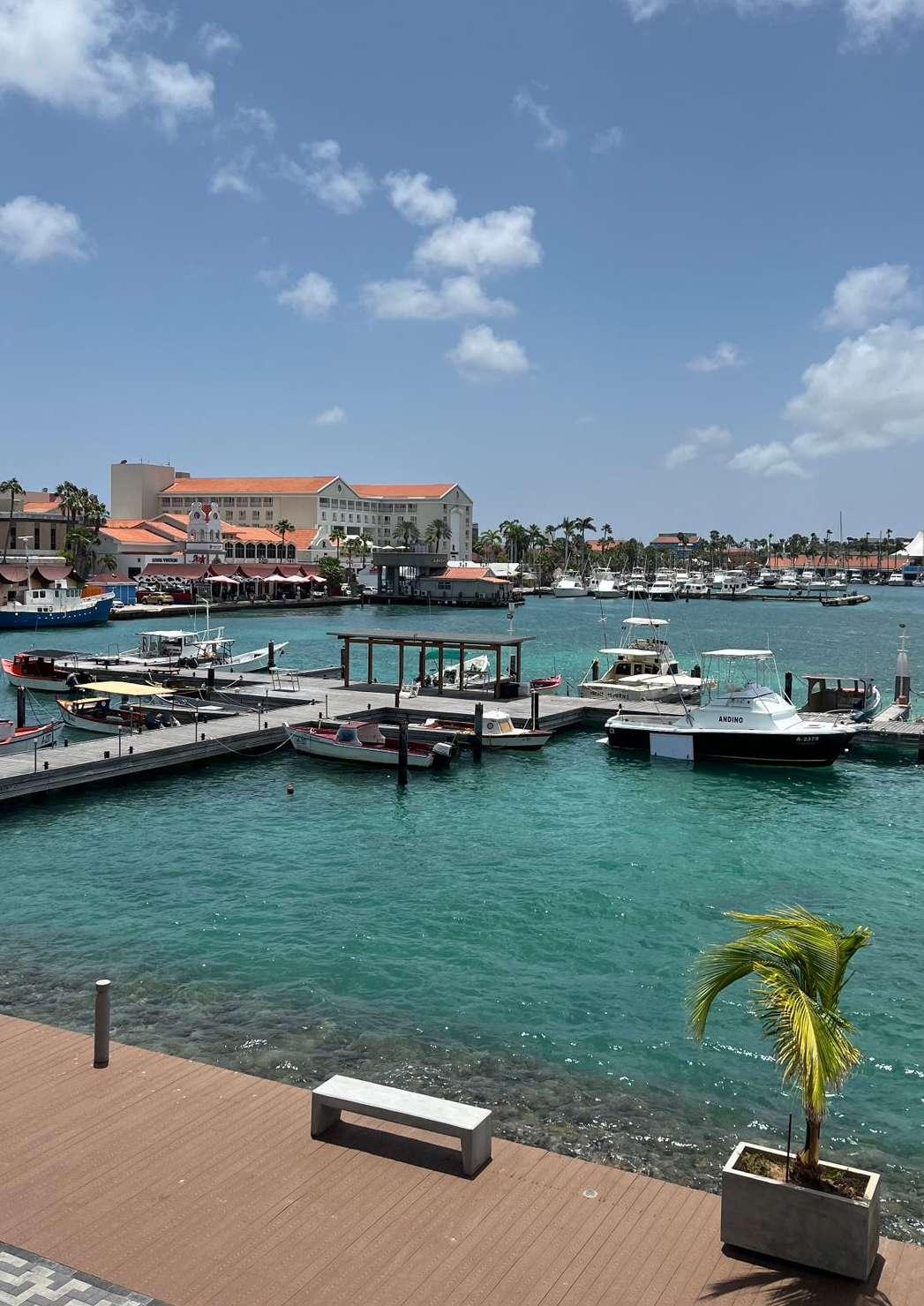
Oranjestad for Everyone
ORANJESTAD FOR EVERYONE
Kico Nos Ta Wak: Oranjestad, Aruba's capital, has immense potential for revitalization. The private sector’s confidence in the city center has been restored, envisioning a vibrant area where people can live, work, and enjoy shopping, cafes, terraces, and restaurants. However, significant challenges remain, such as inadequate parking facilities and the presence of wandering addicts, which impact safety and quality of life. Furthermore, there is a need for a dedicated unit to handle cleaning, maintenance, commerce, and entertainment in the area. Many buildings remain vacant, and critical streets like Columbusstraat and Wilhelminastraat require continued renovation.
Ou Vision: We want to create a vibrant and dynamic Oranjestad where students, young professionals, seniors, and tourists can live in multifunctional spaces. Ground floors of buildings will be designated for commerce, cafes, terraces, bars, and restaurants, while upper floors will house residential spaces, making the city center lively both day and night. In a clean, well-lit, and safe city, all buildings will be renovated and utilized. Streets will be modern, with green zones, benches, and pedestrian areas that boost local trade and tourism.
What We Plan to Do:
- Renew all streets in Oranjestad with pedestrian zones, streetlights, trash bins, benches, and plants to enhance the area’s quality and appeal (within two years of the new government’ installation).
- Ban the presence of addicts and homeless individuals on the streets, paired with reintegration programs (within six months).
- Establish a dedicated police unit for Oranjestad to ensure constant safety for residents, visitors, and business owners.
- Create a unit responsible for cleaning, maintenance, commerce, and entertainment to keep Oranjestad clean, safe, and lively.
- Implement general public space management, giving entrepreneurs clear guidelines for setting up terraces without additional permits or fees.
- Install more public restrooms in strategic locations around the city.
- Revitalize the lagoon area with improved accessibility and aesthetics.
- Introduce a package of tax incentives to stimulate investment in renovating historic and commercial buildings.
- Offer rental subsidies for upper-floor residences aimed at students, young professionals, and seniors.
- Designate Oranjestad as a duty-free zone to promote development and investment.
- Allow upper floors to be rented out as vacation homes for tourists, encouraging sustainabl tourism.
- Allocate the former Texas site to the private sector for constructing a multifunctional building with parking and residential facilities.
- Provide the private sector with the opportunity to develop the former police station in Wilhelminastraat.
- Develop a comprehensive parking policy for Oranjestad, ensuring orderly and accessible parking for residents and tourists.
- Install a Ferris wheel in Oranjestad as an additional tourist attraction to create a more interactive and dynamic atmosphere.
